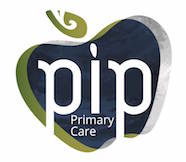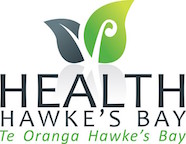Researcher profiles:
- Associate Professor Kirsten Coppell (PI)
- Dr Sally Abel
- Mr Andrew Gray
- Professor Jeremy Krebs
- Professor Tony Merriman
- Jo Norton
- Associate Professor Leigh Perreault
- Kiri Sharp
- Associate Profeesor Trudy Sullivan
- Professor David Tipene-Leach
- Professor Lisa Whitehead
Prediabetes management urgently needed
There is an urgent need to implement effective prediabetes management strategies to reduce the increasing health and economic costs of New Zealand's growing diabetes epidemic. The prevalence of diabetes is 7% and the prevalence of prediabetes is 26%.
Good clinical trial evidence has demonstrated that lifestyle advice prevents progression from prediabetes to diabetes. Evidence showing how similar results can be achieved in 'real world' settings is limited.
Gap in implementation of effective lifestyle interventions in primary care settings
Prediabetes and diabetes screening is recommended as part of cardiovascular risk assessment in New Zealand, but there is no evidence-based lifestyle interventions in place for people found to have prediabetes in the primary care setting. This gap has now been identified.
Real world settings for research team
Edgar Diabetes and Obesity Research has teamed up with Health Hawke's Bay Primary Health Organisation to undertake an implementation research project to bridge this health service and research gap. Other important contributors have been the Hawke's Bay District Health Board and Sport Hawke's Bay.
The proposed research will contribute to workforce and capability, and is patient focused.
Contributors' websites
Comparing effectiveness
Our award-winning pilot study—funded by the Ministry of Health—sought to determine whether a multilevel, primary care-based, prediabetes lifestyle intervention could be implemented and delivered as intended in busy primary care. We compared the effect of the intervention with current practice on weight and HbA1c (glycated haemoglobin, a measure of blood glucose control), in patients with prediabetes at six months. [ACTRN12615000806561]
We undertook a process evaluation and a cost-effectiveness study.
Can we determine which people will return to normal blood glucose levels?
The next phase of this study is funded by the Health Research Council.
Our primary aim:
- to determine if there are clinically relevant and modifiable differences between those with prediabetes who regress to normoglycaemia at 6 months, and those who do not, following participation in a structured practice nurse-delivered prediabetes dietary intervention.
Our secondary aims are:
- to quantify the reduction in incident T2DM at 2 years in participants who regressed to normoglycaemia at 6 months compared with the 'non-regressors'
- to qualitatively explore and examine barriers, challenges and facilitators of clinically meaningful lifestyle changes among those who do, and do not, regress to normoglycaemia
- to explore whether rare (including Māori-specific) genetic variants might influence regression to normoglycaemia at 2 years
This Hawke's Bay-based and Health Research Council (HRC) funded project plans to recruit 400 people with prediabetes. Recruitment will begin in June 2017. [ACTRN12617000591358]
Publications
Coppell KJ, Abel S, Whitehead LC, Tangiora A, Spedding T, Tipene-Leach D. (2021) A diagnosis of prediabetes when combined with lifestyle advice and support is considered helpful rather than a negative label by a demographically diverse group: A qualitative study. Prim Care Diabetes. Dec 22:S1751-9918(21)00188-1. doi: 10.1016/j.pcd.2021.10.003.
Whitehead L, Mizen CC, Coppell KJ. (2021) The effectiveness of goal setting on improving glycaemic control for people living with pre-diabetes or type 2 diabetes mellitus: A systematic review. Journal of Advanced Nursing. Oct 29. doi: 10.1111/jan.15084.
Abel SL, Whitehead LC, Tipene-Leach DC, Coppell KJ. (2021) Proximal and distal influences on dietary change among a diverse group with prediabetes participating in a pragmatic, primary care nurse-led intervention: a qualitative study. Public Health Nutr 10:1-12. doi: 10.1017/S1368980021001968.
Whitehead L, Glass CC, Abel SL, Sharp K, Coppell K. (2020) Exploring the role of goal setting in weight loss for adults recently diagnosed with pre-diabetes. BMC Nurs 19, 67. https://doi.org/10.1186/s12912-020-00462-6
Coppell K, Freer T, Abel SL, Whitehead LC, Tipene-Leach D, Gray AR, Merriman T, Sullivan T, Krebs J, Perreault L. (2019) What predicts regression from pre-diabetes to normal glucose regulation following a primary care nurse-delivered dietary intervention? A study protocol for a prospective cohort study. BMJ Open 2019;9:e033358. doi: 10.1136/bmjopen-2019-033358
Connor D, Coppell K, Gray A, Sullivan T. (2019) A cost-effectiveness analysis of the Prediabetes Intervention Package (PIP) in primary care: A New Zealand pilot programme. New Zealand Medical Journal. 132(1504), 24-34. Retrieved from https://www.nzma.org.nz/journal (subscription required)
Abel SL, Whitehead LC, Coppell KJ. (2018) Making dietary changes following a diagnosis of prediabetes: a qualitative exploration of barriers and facilitators. Diabetic Medicine. August 9; doi:10.1111/dme.13796
Coppell KJ, Abel SL, Freer T, Gray A, Sharp K, Norton JK, Spedding T, Ward L, Whitehead LC. (2017) The effectiveness of a primary care nursing-led dietary intervention for prediabetes: a mixed methods pilot study. BMC Fam Pract. Dec 21;18(1):106. doi:10.1186/s12875-017-0671-8
Presentations
Whitehead LC, Coppell KJ, Abel SL, Freer T, Gray A, Sharp K, Norton JK, Spedding T, Ward L. The effectiveness of a primary care nurse-led prediabetes intervention package. Primary Health Care Research Conference: Measuring and Improving Value in Primary Health Care. 1-3 August, 2018, Melbourne, Australia.

Research collaborator
Research contributors
PIP in the news
- Diabetes and me: Life-changing diagnosis revealed in such a casual manner, RNZ, 27 April, 2022
- 'Frightening' diabetes costs highlighted, Otago Daily Times, 25 October, 2019
- The pre-diabetes tidal wave, Stuff website, 15 April, 2017
- PIPI study wins innovation award, 5 December, 2016

